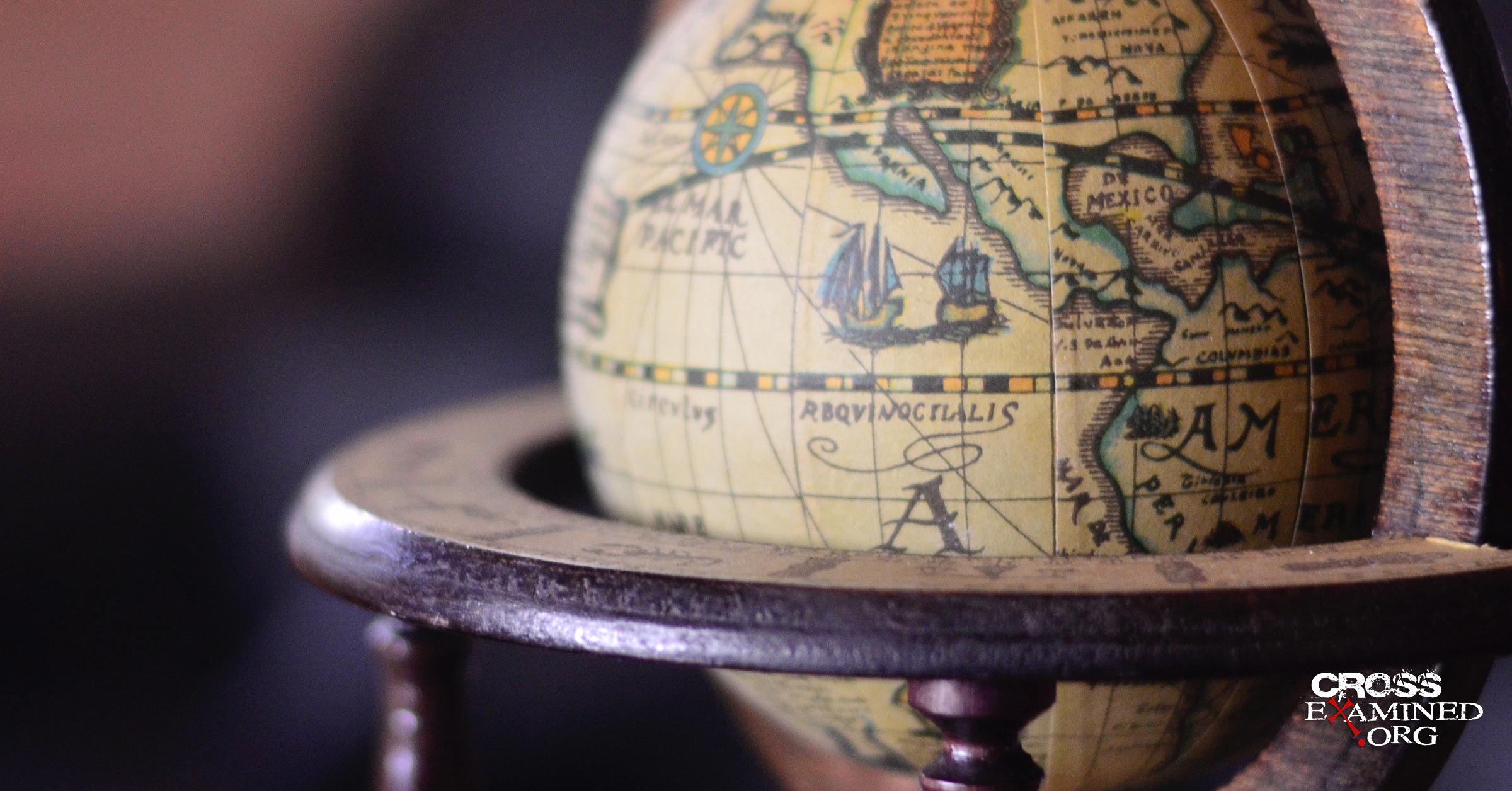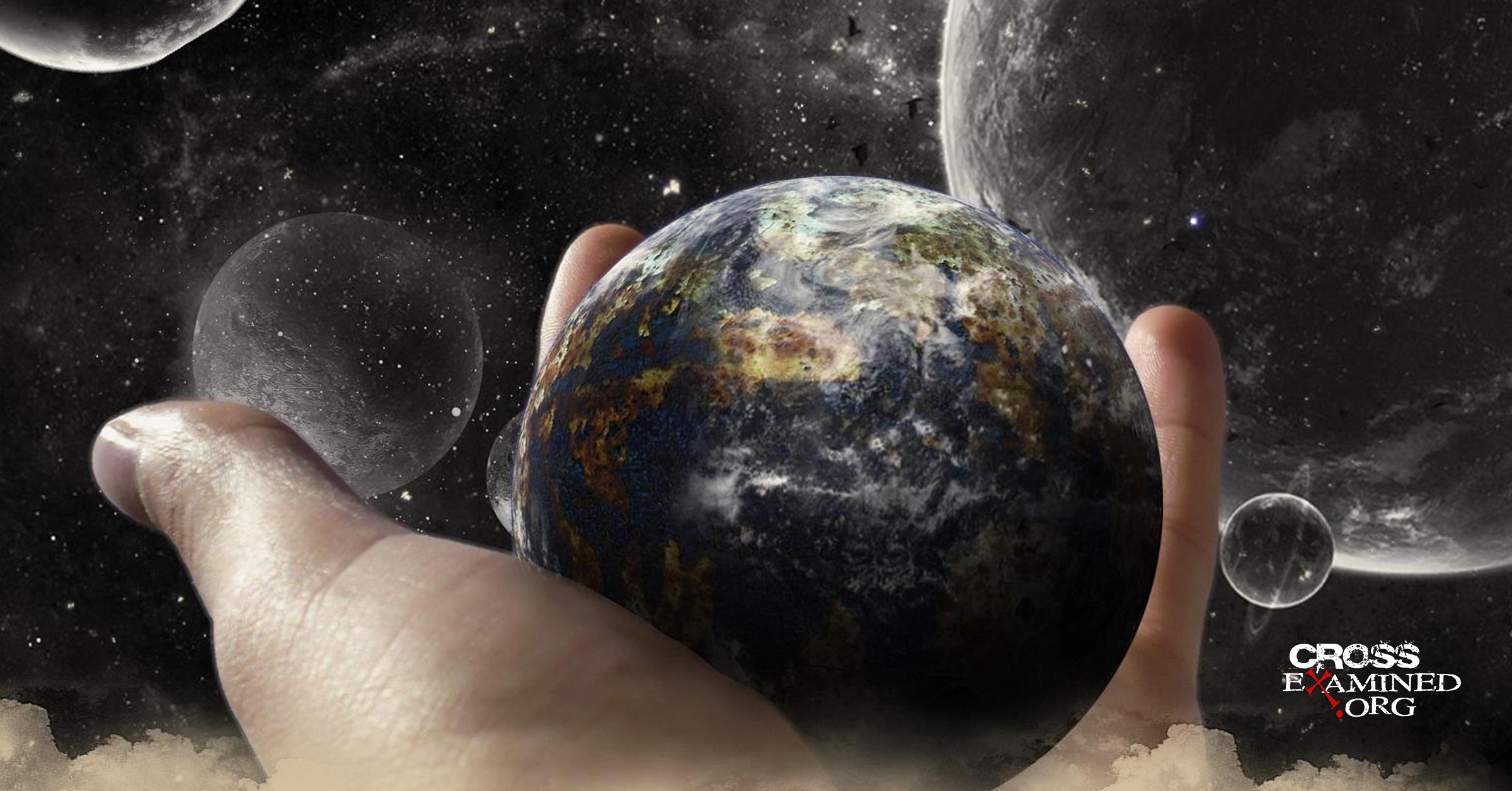Jesus is the Logos. The Logos is a combination of truth, goodness, and beauty. Truth, goodness, and beauty are the references that give us a grounded Christian spirituality. That’s the True Horizon model — spirituality based on an accurate picture of the world. But what does a spirituality grounded in the real world look like?
More Than An Analogy
I have used an aviation analogy as a model for visualizing what it means to be spiritual. But an analogy is just a way to represent something real. And analogies can only go so far. Please don’t miss the purpose behind it. My point is simply that the culture has convinced too many of us that spirituality is disconnected from reality. That it is some free-floating source of emotional comfort. What I’m suggesting is that that is not what Christianity teaches. Christianity is grounded in the Logos. It produces a spiritual life that is attached to, and reflects, the real world.
Grounded In Truth
The dictionary definition of truth is “correspondence to reality.” In other words, if what you believe about something matches the way the world actually is, then what you believe is true. Again, truth doesn’t exist in our minds. To seek truth is to want to believe things about how the world is, not about how we would like it to be.
Christianity matches what we find in the world in several different ways.
Common Observations and Experiences
Here are a few things that every one of us can see when we look at the world around us:
Human life is inherently unique and valuable.
This matches our common experience of the human condition. We don’t need anyone to teach us to respect and value human life.
The universe we live in owes its existence to an external source.
The universe had a beginning that requires an explanation. This is a conclusion that both science and philosophy lead us to.
Lies and deception are destructive.
We see this all around us every day. No one wants to be lied to. Everyone recognizes the harm that lies can bring to us individually and as a society.
Evil repulses us. Goodness attracts us.
Remember, we are talking about a feature of reality here. This is not about how we know good and evil. It is about the fact that both exist.
There is an order, intelligence, and purpose to the universe.
There are laws of logic and mathematics that describe the universe. Our location in time and space is fine-tuned to an incomprehensibly unlikely level. There is a digital code more complex than any computer algorithm ever written that controls and sustains every form of life on the planet.
There are many more examples, but all of these are different forms of truth, goodness, and beauty. And here’s the point…
A Grounded Spirituality
Based on just these things, a grounded spirituality should:
- Pursue a life that values other human life.
- Recognize that we are created beings, not gods unto ourselves.
- Make us truthseekers and truth-tellers.
- Understand that goodness, and the morality it demands is not based on our feelings and experiences, but in the nature of the Creator who made us.
- Stand in awe of the miraculous nature of our very existence.
And each of these holds three things in common:
- We can learn them directly from our observations and experiences in the world.
- We don’t need the Bible to know any of them.
- They are perfectly consistent with Christianity.
This is what I mean by a “grounded spirituality.” It matches what the Bible says — and it is supported by reality itself.
Common Ground
Don’t misunderstand. When I say, “we don’t need the Bible to know any of them,” I am not diminishing the importance of the Bible in our spiritual life. I am simply pointing out that this gives us confidence that truth is grounded in the Bible — and that the Bible is grounded in the truth.
Both come from the same Source.
When we understand that, it gives us common ground for discussing spirituality with everyone. Whether they are a hardcore atheist or a spiritually disoriented Christian, they live in the same world as you and me. And we should love them enough to have the courage to confidently, but respectfully, help them re-orient their thinking.
Recommended resources related to the topic:
Counter Culture Christian: Is the Bible True? by Frank Turek (DVD)
Is Morality Absolute or Relative? by Dr. Frank Turek DVD, Mp3 and Mp4
How Can Jesus be the Only Way? (mp4 Download) by Frank Turek
Bob Perry is a Christian apologetics writer, teacher, and speaker who blogs about Christianity and the culture at truehorizon.org. He is a Contributing Writer for the Christian Research Journal and has also been published in Touchstone and Salvo. Bob is a professional aviator with 37 years of military and commercial flying experience. He has a B.S., Aerospace Engineering from the U. S. Naval Academy, and an M.A., Christian Apologetics from Biola University. He has been married to his high school sweetheart since 1985. They have five grown sons.
Original Blog Source: https://bit.ly/3iRsvOb






 During this pandemic, there is perhaps no one who we are being asked to trust more than Doctor Anthony Fauci. And let me be clear. I don’t envy his position or question his credentials.
During this pandemic, there is perhaps no one who we are being asked to trust more than Doctor Anthony Fauci. And let me be clear. I don’t envy his position or question his credentials. 




